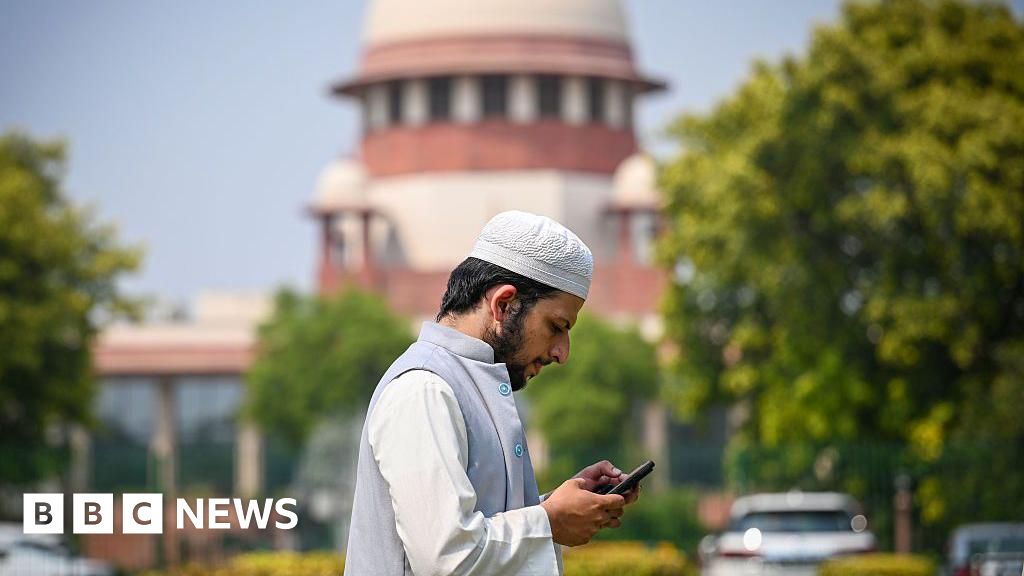
Waqf: India top court stays key provisions of new law governing Muslim properties

India’s Supreme Court Halts Key Provisions of Controversial Waqf Law
India’s Supreme Court has intervened in a contentious legal matter by placing a temporary stay on significant provisions of a new law that alters the governance of properties donated by Muslims. This law, known as the Waqf (Amendment) Act 2025, was enacted by the Indian Parliament in April and has faced considerable backlash from various Muslim organizations and opposition parties. While the court has not completely invalidated the law, its decision to suspend certain provisions reflects ongoing tensions regarding the management of waqf properties, which are integral to the Muslim community.
Background on Waqf Properties
Waqf properties are charitable or religious donations made by Muslims, designated for the support of mosques, madrassas (Islamic schools), orphanages, and other community services. According to Islamic law, these properties cannot be sold or repurposed for any other use. The governance of such properties in India has historically been regulated by the Waqf Act of 1995, which established state-level waqf boards tasked with managing these assets.
The recent amendments introduced by the ruling Bharatiya Janata Party (BJP) government sought to enhance transparency in the management of waqf properties. However, critics argue that the changes pose a threat to the rights and interests of the Muslim community, leading to the legal challenges that prompted the Supreme Court’s review.
Legal Challenges and Court Proceedings
The Supreme Court was presented with a series of petitions from various Muslim groups and political opposition parties, all contesting the legality of the Waqf (Amendment) Act 2025. The petitioners contended that the law infringes upon the rights of Muslims and undermines the established framework for managing waqf properties.
On Monday, a bench comprising Chief Justice of India BR Gavai and Justice AG Masih deliberated on these petitions and chose to stay certain provisions of the law. The court emphasized that granting a stay is a rare action, reserved for exceptional circumstances.
One of the most contentious provisions halted by the court was the clause that permitted the government to determine whether a disputed property qualifies as waqf. Historically, many properties have been recognized as waqf based on oral declarations or community customs, reflecting their longstanding use by the Muslim community. The court’s ruling underscores the importance of maintaining the separation of powers between the executive and judiciary, as enshrined in the Indian Constitution.
Key Provisions Affected by the Stay
In addition to the provision regarding government determination of waqf status, the court also suspended another controversial clause that required waqf donors to have been practicing Muslims for a minimum of five years. This requirement raised concerns about the inclusivity and accessibility of waqf property management for potential donors.
Under the existing framework, state-level waqf boards and a central council, which includes nominees from the state government, Muslim lawmakers, members of the state bar council, Islamic scholars, and property managers, oversee the management of waqf properties. The new law had proposed that waqf boards provide valid documentation to substantiate claims of property status, with the final decision on disputes resting with the government.
Future Implications and Court’s Recommendations
While the Supreme Court did not stay a provision allowing for the nomination of non-Muslims to waqf boards, it did impose limitations on their representation. The court ruled that non-Muslim members on the federal board should be capped at four out of a total of 22 members, and three out of 11 members on state boards. Additionally, the court suggested that efforts should be made to appoint the chief executive officer of the waqf board from within the Muslim community, reinforcing the need for representation in governance.
The case has been a focal point of discussion since the law’s passage in April, drawing widespread criticism from Muslim groups and opposition parties. The Supreme Court had reserved its judgment on the matter on May 22 after three consecutive days of hearings.
Conclusion
The Supreme Court’s recent decision to stay key provisions of the Waqf (Amendment) Act 2025 highlights the complexities surrounding the governance of Muslim properties in India. As the legal battles continue, the implications of this ruling may significantly impact the management and oversight of waqf properties, which hold substantial cultural and religious significance for the Muslim community.
Key Facts
– The Supreme Court of India has stayed key provisions of the Waqf (Amendment) Act 2025.
– The law was enacted by the ruling Bharatiya Janata Party in April 2023.
– Waqf properties are charitable donations made by Muslims for community purposes.
– The previous Waqf Act of 1995 established state-level boards for property management.
– The court’s stay includes provisions allowing government determination of waqf status and the requirement for donors to be practicing Muslims for five years.
– The case has been met with significant opposition from Muslim groups and political parties.
Source: www.bbc.com


